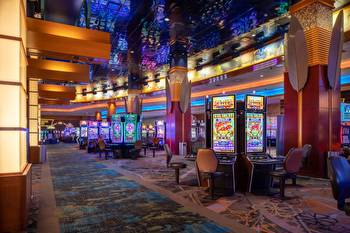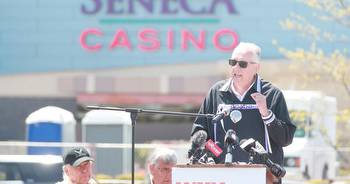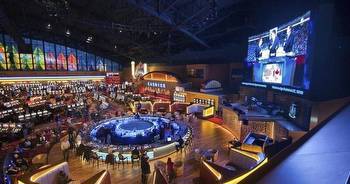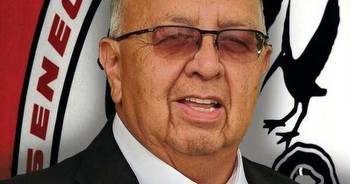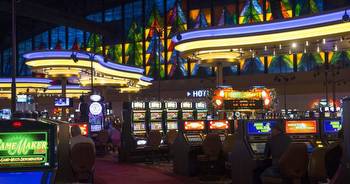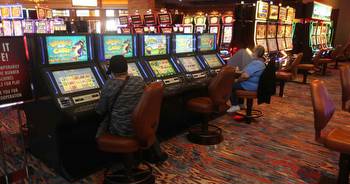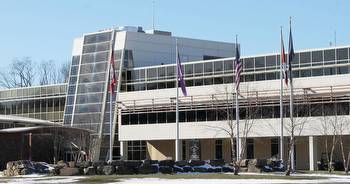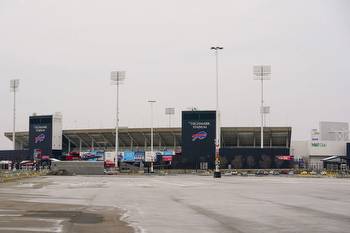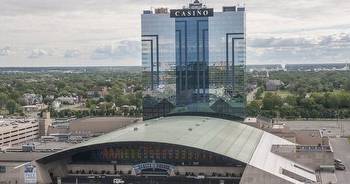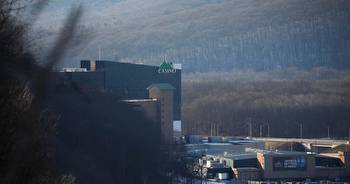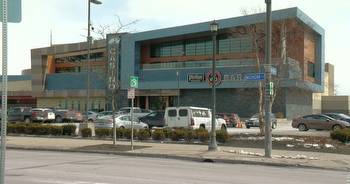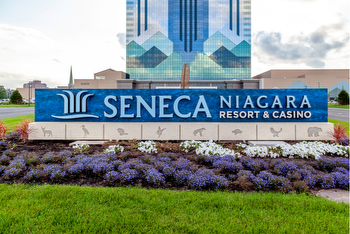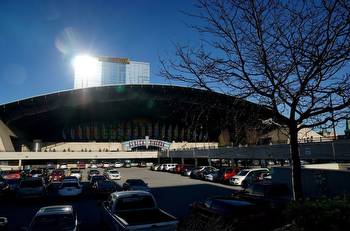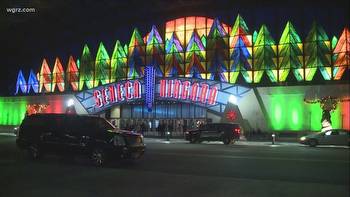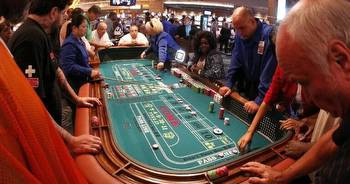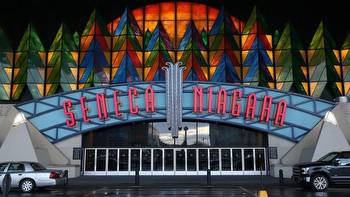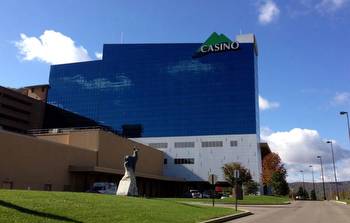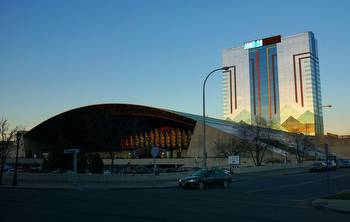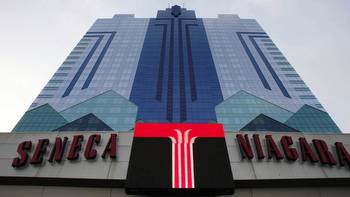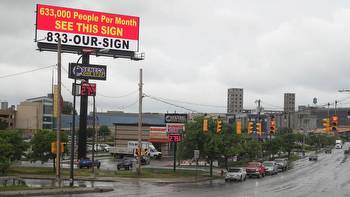Two decades after opening, Falls casino impact still up for debate

When it opened in 2002, some hailed Seneca Niagara Casino as the catalyst Niagara Falls needed to drive the growth of new hotels, attractions and other businesses in the downtown area.
At the time, others weren't quite as convinced of the casino's potential impact, suggesting instead that would be more of a "piece of the puzzle" in re-establishing downtown as a viable and attractive place for tourists and locals alike.
Then there were the critics, those who feared bringing casino-style gambling to struggling cities like Niagara Falls would create more problems than it solved.
Today marks 20 years of business for Seneca Niagara Casino, which opened to the public for the first time on Dec. 31, 2002.
While much of the surrounding area still looks a lot like it did back then, Seneca leaders argue that the Nation's casino in the Falls has been a benefit to the Falls because it created jobs, supports local vendors and contributes to a larger pot of slot machine revenue the city wouldn't have received otherwise.
"I think we provide that catalyst," said Seneca Nation of Indians President Rickey Armstrong Sr., who is now serving his third term as the Nation's top executive. "I hope they recognize that we are good neighbors. Some people view gaming as parasites. I don’t necessary agree that that’s (the case) with us. We’re business minded, but we are also community minded."
OUTLINING THE PROS
On its website, StandwithSeneca.com, the Seneca Nation says it currently pays nearly $220 million in wages to a total of 5,801 employees, including 3,892 people who work for the Seneca Gaming Corp. and another 1,971 who are employed by the Seneca Nation itself.
Roughly 1,500 people work at Seneca Niagara Casino. Of those, Kevin Nephew, the chief executive officer and president of the Seneca Gaming Corp., said roughly 1,000 live in Niagara County.
According to the Seneca Nation, those employees paid more than $45.2 million in federal payroll taxes and nearly $8.1 million in state payroll taxes.
Beyond jobs, there's been investment in construction and renovation projects.
In addition to the $100 million convention center conversion, the Seneca Gaming Corp. spent $200 million to add the 26-story, 604-room hotel next to Seneca Niagara Casino. The hotel initially opened in 2005 and was fully completed in April 2006.
In 2014, the corporation spent another $26 million to renovate the gaming floor on the west side of the casino.
Five years later, it spent another $40 million on the "Seneca Arrival Experience," a project that involved upgrades to the Seneca Niagara event center, hotel front entrance, mezzanine and lobby bar.
Armstrong and Nephew both noted that through its daily operations and with each large-scale construction or renovation project, the Nation is consistently providing work for vendors, many of which are located in Western New York.
"When people invest in Seneca, that’s keeping those dollars in Western New York and ultimately it helps not just the Seneca Nation and the gaming corporation, but it helps the local economies of Niagara, Buffalo and Salamanca," Nephew said.
According to its website, the Seneca Nation has purchased more than $362 million in goods and services from more than 6,500 vendors. Of those vendors, 3,700 earned $107 million in Western New York while another 4,200 received $158 million for their services to the Nation and the gaming corporation statewide.
"Our benefits go way beyond our company," Armstrong said. "We spend hundreds of millions of dollars with New York vendors each year, supporting their employees."
Seneca leaders note that there's more to be considered when it comes to discussing the true impact of the Nation's casinos than jobs, vendor relationships and overall investment.
Under the terms of the existing gaming compact with the state, which is set to expire in December 2023, New York state receives 25% of the slot machine revenues from the Senecas' casinos each year. In turn, the state has distributed 25% of those revenues to the three host communities of Niagara Falls, Buffalo and Salamanca on an annual basis.
The payments to the state totaled more than $110 million per year, leading to a total of $1.4 billion in payments being made over a 14-year period that ended in March 2017.
Seneca Nation leaders suspended casino payments at that time over what they described as violations of the compact's exclusivity terms. The Nation later agreed to deliver an additional $564.8 million in revenues that had been held back amid the dispute. The City of Niagara Falls received nearly $40 million of those funds.
Armstrong and Nephew say the casinos have meant improvements in the quality of life for members of the Seneca Nation as well.
Prior to the opening of the casinos, Armstrong said the Nation had limited funding options for meeting housing, education, health care and other needs of the Seneca people.
Since the opening of Seneca Niagara Casino and the Nation's other gaming properties, Armstrong said significant investments have been made to improve the quality of life on the Nation's territories in Cattaraugus and Allegany.
"In general, we’ve raised our quality of life substantially," Armstrong said.
WEIGHING THE CONS
Still, there has not been a dramatic increase in development around the casino in the 20 years since it opened.
That's a stark contrast from the predictions made by many local and state political leaders, including former Gov. George Pataki who suggested that bringing gaming to the Falls would trigger the development of new hotels, restaurants and shopping centers in the Falls.
When Pataki signed the law authorizing the Seneca Nation to open casinos in Western New York in 2002, his top economic development aide Charles Gargano was quoted in the Buffalo News as saying casino gaming would create "thousands" of additional jobs "outside of the casino walls."
While a few new hotels have been built in the downtown area in the past 20 years, the city has not experienced an economic boom since gaming came to town.
With all the casino has to offer, including restaurants, bars, shops, sports gaming and entertainment venues and concert space, critics have argued that the casino hasn't helped and has instead made it harder for businesses outside the Nation's territory to compete.
Diane Bennett, an attorney who served as the first female chairwoman of the Buffalo law firm Hodgson Russ before her retirement in 2004, provide legal support to a group called Citizens for a Better Buffalo that filed several lawsuits aimed at stopping the Senecas from opening Seneca Creek Casino in downtown Buffalo.
While the group's lawsuits focused, in part, on procedural concerns about the way the federal government handled its review of the Senecas' casino plans in Western New York, Bennett said her motivation for opposing the opening of the Buffalo casino had more to do with concerns about how it would negatively impact the local economy.
Bennett argues that casinos like the one in the Falls are designed to hold audiences captive so that they spend all their money in one place, leaving local residents poorer for it.
"Once you are inside these things, they are just their own world and you are not supposed to look at anything else except the slot machines," she said.
In Niagara Falls, she also noted that the Senecas have now opened a gas station that sells untaxed cigarettes and gasoline in competition with taxpaying private businesses in the city.
"They are not only draining what they might call discretionary money, they are also draining tax dollars from the city," she said.
Looking back on the issue years later, Bennett said her concerns about the true impact of casino gaming have been were realized as the area surrounding Seneca Niagara Casino looks more like a "wasteland" than a thriving business district.
"Certainly, Niagara Falls has had plenty of time for all the spinoff businesses that the Senecas and the politicians claimed there would have been," she said. "It's been a disaster."
LOOKING AHEAD
Armstrong acknowledges, that, in the City of Niagara Falls in particular, people had high expectations about the Nation transforming the city "into something else," but he noted that the Nation can only control what happens with its own footprint.
He maintains that the casino remains a draw for visitors and local residents alike.
"I think we at least provided a mechanism for people to want to come there," Armstrong said.
As for the future, Armstrong said the Nation remains committed to being a partner in the continued development of Niagara Falls and he believes current Mayor Robert Restaino has demonstrated a willingness to work together for the betterment of both parties.
"We’re there, I think, as good neighbors," he added. "We surely recognize that wherever we can help the city and help them grow, it also helps us."








